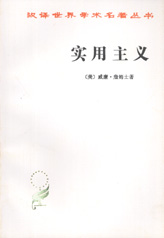牛津实用英语语法-第32章
按键盘上方向键 ← 或 → 可快速上下翻页,按键盘上的 Enter 键可回到本书目录页,按键盘上方向键 ↑ 可回到本页顶部!
————未阅读完?加入书签已便下次继续阅读!
College lecturer:You needn't type your essays but you must write legi… bly.
大学教师:你们不必把文章用打字机打出来,但必须字迹清楚。
2 其他表示外界权威的形式:
Tom doesn't have to wear uniform at school.
汤姆在学校不一定要穿校服。
We don't have to type our essays but we have to write legibly.
我们的文章不一定要打出来,但字迹一定要清楚。
When I'm an old age pensioner I won't have to pay any more bus fares.
等我到领取养老金的时候,我坐公共汽车就不用买票了。
Ann hasn't got to go/doesn't have to go to this lecture.Attendance is op… tional.
安不一定非去听讲。那讲座是可去可不去的。
When I have a telephone of my own I won't have to waste time waiting outside these wretched telephone boxes.
等我自己有了电话,我就不用等在讨厌的电话亭外而浪费时间了。
Ann doesn't have to cook for herself.She works at a hotel and gets all hermeals there.
安不用自己做饭吃。她在一家饭店工作,在那里用餐。
3 然而,有时need not也可以用于表示外界权威,以代替won't/ don't need to或won't/don't have to等各种形式。这种用法尤其普遍地用于第一人称:
I needn't/won't/don't have to type this report today.Mr Jones said that there was no hurry about it.
我今天不必把这个报告打出来。琼斯先生说这份报告不急着要。
请注意,虽然 need not可用来表示将来的习惯性动作:
I'm retiring.After Friday I need never go to the office again.
我就要退休了。星期五之后我就再也不必到办公室去了。
但不能用 need not表示一个现在的习惯性动作:
I don't have to queue for my bus.I get on at the terminus.
我用不着排队等公共汽车。我在首发站上车。(这里不能用need
not。)
B 过去时
如need用于过去时,说话人的权威和外界权威之间的差别就消失了,因而我们可任意运用以下三种形式:didn't have to,didn't need to和hadn't got to。这几种用法不存在含义上的差别,但 hadn't got to不常用于表示习惯性动作。 didn't have to 是最常用的:
I didn't have to wait long.He was only a few minutes late.
我没等太长时间。他只迟到了几分钟。
When he was at university he didn't have to/need to pay anything for his keep,for he stayed with his uncle.
他读大学时不需要付食宿费用,因为他与他的叔父住在一起。
?
'Amber demo'
151 must,have to和 need用于疑问句
?
==================================
ABC Amber CHM Converter v6。22
Trial version
==================================
need?和must?都意味着说话的对方是有关的权威。need?还包含着说话人希望得到否定回答的含义:Must I go,moth… er?和Need I go,mother?含义相同,但在后一问句中,说话人希望他的母亲回答说“不”。need的另一种疑问式do I need?等也有同样的用法。注意以下各种可能的回答:
—Shall I have to go?
—Yes,you will./No,you won't.
—我必须去吗?
—是的,必须去。/不,不必去。
—Have I got to go?
—Yes,you have./No,you haven't.
—我必须去吗?
—是的,必须去。/不,不必去。
—Does he have to go?
—Yes,he does./No,he doesn't
—他必须去吗?
—是的,必须去。/不,不必去。
—Need I go?
—Yes,you must./No,you needn't.
—我需要去吗?
—是的,必须去。/不,不需要去。
—Must I go?
—Yes,you must./No,you needn't.
—我必须去吗?
—是的,必须去。/不,不需要去。
?
'Amber demo'
152 needn't+完成式
?
这个结构用来表示虽然不必要但却已完成的动作:
I needn't have written to him because he phoned me shortly afterwards.
我本来不需要给他写信,因为不久之后他就给我打了电话。(但我的确写了,因而浪费了时间。)
You needn't have brought your umbrella for we are going by car.
你本来不用带雨伞,因为我们将要坐车去。(但是你却多余地带了伞。)
He needn't have left home at 6:00;the train doesn't start till 7:30.
他本不必6点就离开家;火车7点30分才出发。(因此他要等一个小时。)
?
'Amber demo'
153 needn't have(done)和didn't have/
need(to do)的比较
?
A needn't have done意指没必要干某件事但多余地干了,即浪费了时间:
You needn't have watered the flowers,for it is going to rain.
你本不必浇那些花,因为就要下雨了。(你浪费了时间。)
You needn't have written such a long essay.The teacher only asked for
300 words,and you have written 600.
你本不必写这么长的文章。老师只要求写300个字而你却写了600个字。
He needn't have bought such a large house.His wife would have been quite happy in a cottage.
他没必要买这么大一所房子。他的妻子住在一个小房子里也会感到很满意的。(浪费了钱)
You needn't have carried all these parcels yourself.The shop would have delivered them if you had asked them.
你本来没有必要自己拿着这些大包小裹的。要是当时你跟商店说一声,他们就会把东西送来的。
B didn't have/need to do意指不一定非干某事,而通常也并没有这样做:
I didn't have to translate it for him for he understands Dutch.
我用不着替他翻译,因为他懂荷兰语。
I didn't have to cut the grass myself.My brother did it.
我用不着自己修剪草坪。我的兄弟修剪过了。(无义务,而且无行动)有些人的确把didn't have to/didn't need to用于表示已完成的动作,这时 have或 need都要加以重读:You didn't 'have to give him my name通常意味着没有必要告诉他我的姓名,但是你却告诉了他。但当一个不必要的动作实际已完成了时,还是用needn't have+过去分词为好:
You needn't have given him my name.
你本来没必要把我的姓名告诉他的。
?
'Amber demo'
154 needn't,could和should+完成式
?
A needn't+完成式常常和could+完成式结合使用。这种用法最好通过例句来说明:
—I wanted a copy of the letter,so I typed it twice.
—You needn't have typed it twice.You could have used a carbon.
—我需要那封信的副本,所以我打了两遍字。
—你没必要打两遍。你当时本可以用复写纸打。
—I walked up six flights of stairs.
—You needn't have walked up;you could have taken the lift.
—我爬了六层楼梯。
—你没必要走着上去;你本来可以乘电梯的。
—She stood in a queue to get an Underground ticket.
—But she needn't have stood in a queue.She could have got a ticket from the machine.
—她排队买一张地铁车票。
—可她本来不需要排队。她本可以在售票机那儿买票。
B needn’t have和 should have的比较
should或ought to在以上A的例句中都可以代替need或could:
She shouldn't have stood in a queue.She should have got tickets from the machine.
她本来就不该去排队。她应当在售票机那儿买票。
但这里存在着含义上的差别:
She shouldn't have stood in a queue.
她本来就不该去排队。(她排队是错误的或愚蠢的。)
She needn't have stood in a queue.
她本不必去排队。(这样做是不必要的,但她却排了队。)
shouldn't have(done)有批评之意。
needn't have(done)不含有批评之意。
?
'Amber demo'
155 need意指require(需要)
?
如第149节所示,need可以像普通动词那样变化。此时它有
通常的各种规则的变化形式,但没有进行式。
need可以和带to的不定式连用,或者和作宾语的名词/代词连用:
I need to know the exact size.
我需要知道确切的尺寸。
How much money do you need?I need £
5.你需要多少钱?我需要五英镑。
need可以和不定式的被动式或动名词连用
Your hair needs to be cut/needs cutting.
你需要理发了。
The windows need to be washed/need washing.
这些窗户需要擦洗了。
这里可以用want+动名词代替:
Your hair wants cutting.
你需要理发了。
?
'Amber demo'
第十五章must,have,will和should表示推断和假设?
?
'Amber demo'
156 must表示推断
?
A 各种形式
现在时
must+现在式:
He must live here.
他一定是住在这里。
或must+进行式:
He must be living here.
(译文同上。)
过去时
must+完成式:
He must have lived here.
他一定在这里住过。
或 must+ 完成进行式:
He must have been living here.
他当时一定住在这里的。
注意 must的各种过去式表示推断和 had to相当于 must表示义务的区别。
must不能用于表示否定的推断(参见第159节),一般也不用于疑问式,除非是对含有must的推断句提问:
—There is a lot of noise from upstairs.It must be Tom.
—Why must it be Tom?Other people use that flat.
—楼上喧闹的声音很大。一定是汤姆弄的。
—为什么一定是汤姆呢?那套房子里也有别人。
B 例句
He has a house in London and another in Paris,so he must be rich.
他在伦敦有一栋房子,在巴黎又有一栋房子,可知他一定有钱。
—I've had no sleep for 48 hours.
—You must be exhausted.
—我已经48小时没睡觉了。
—你一定筋疲力尽了。
He develops his own films.That must save him a lot of money.
他自己冲洗照片。那样肯定为他节省了很多钱。
I keep meeting him on the bus.He must live/must be living near by.
我接连在公共汽车上碰到他。他一定就住在附近。
The police are stopping all cars.They must be looking for the escapedprisoner.
警察命令每一辆车都停下来(接受检查)。他们一定是在查找逃犯。—What explosion?I didn't hear any.
—You must have heard it!The whole town heard it!
—什么爆炸声?我一点也没听见。
—你一定听见了!全城人都听见了!
He must have taken sleeping pills last night.He didn't wake up till lunch time.
他昨晚一定吃了安眠药。他一直到吃中午饭的时候才醒来。
—I waited under the clock!
—So did I,but I didn't see you!We must have been waiting under differ… ent clocks.
—我在大钟底下等的!
—我也是,可我没见到你!一定是在两个不同的钟底下等的。
—It was a head…on collision,but the drivers weren't hurt.
—They must have been wearing their seat belts.
—这次车祸中肇事车辆迎头相撞,但两个驾驶员都没伤着。
—他们肯定系了安全带了。
?
'Amber demo'
157 must与may/might的比较
?
它们之间的差别最好通过实例来了解:
(a)设想一个钥匙环上有三把钥匙,而且知道其中一把钥匙是开地下室的门的。可能选出一把钥匙说:
This may/might be the key.
可能就是这一把钥匙。(也许这是那把钥匙。)
但一连试了两把钥匙都没打开锁,就会拿起第三把钥匙说:
This must be the key.
一定是这把钥匙。(不存在别的选择了。)
(b)—I wonder why Tom has





